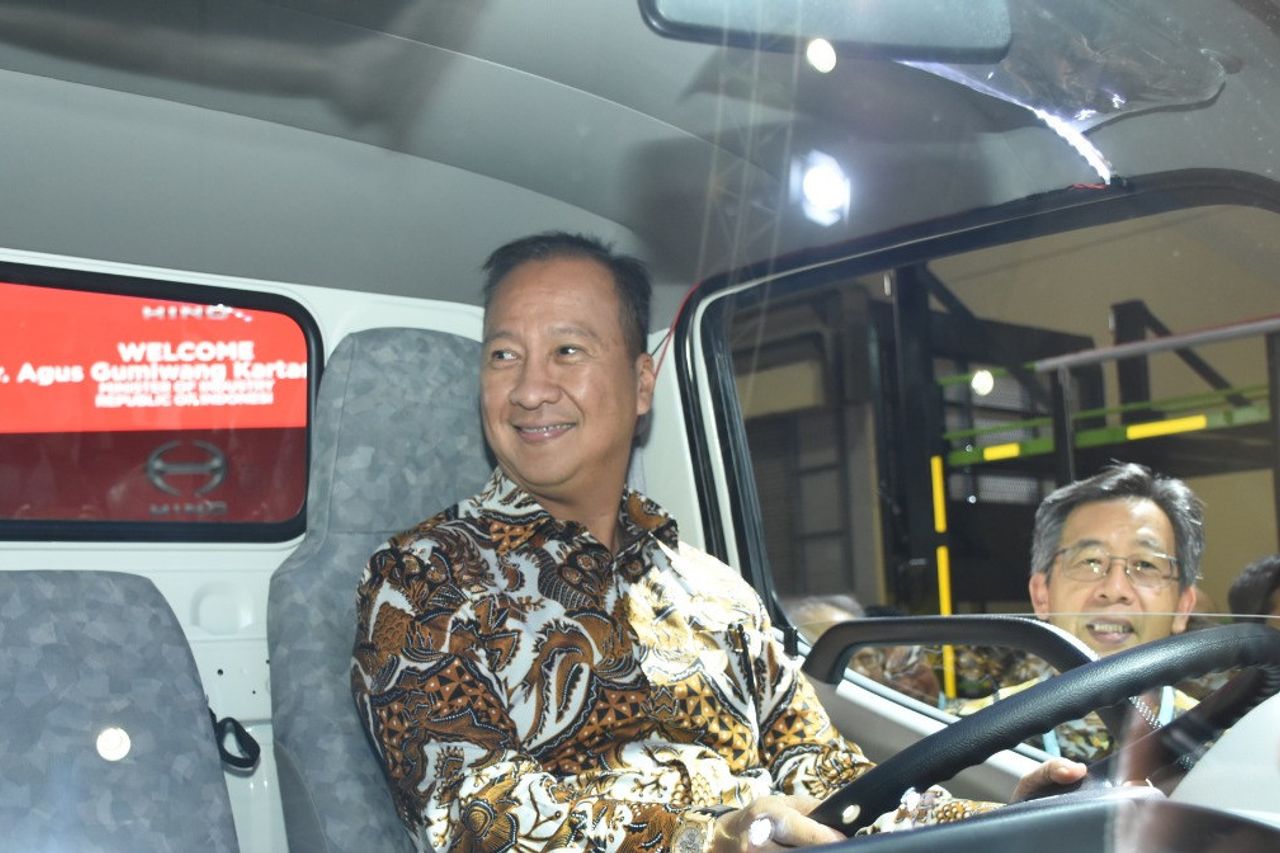Commercial Vehicle Industry Potential To Boost National Exports

JAKARTA - The Ministry of Industry continues to encourage the domestic automotive industry, especially commercial vehicle manufacturers, to be more productive and innovative so that they can compete both domestically and globally. This also spurs the growth of the manufacturing sector and the national economy.
"Moreover, these commercial vehicles play an important role, especially in assisting infrastructure development and development in the country," said Industry Minister Agus Gumiwang Kartasasmita at the opening of the Gaikindo Indonesia International Commercial Vehicle Expo (GIICOMVEC) 2020 in Jakarta, Thursday, March 5.
The Minister of Industry gave his appreciation to the Association of Indonesian Automotive Industries (Gaikindo) which held GIICOMVEC 2020 with a business-to-business concept to showcase superior and latest products from the commercial vehicle industry and its supporters. This exhibition will take place on 5-8 March 2020 at the Jakarta Convention Center (JCC).
"This is one form of Gaikindo's commitment to encourage the automotive industry, particularly the commercial vehicle industry. We must be optimistic in developing the industrial sector amidst the current global economic conditions and the Covid-19 outbreak, "he explained.
GIICOMVEC 2020 is also a good momentum in showing the confidence of national industry players. Agus said that his party will further boost the performance of the commercial vehicle industry this year.
Moreover, he said, the automotive industry was one of the five manufacturing sectors that had priority development in readiness to enter the industrial era 4.0 according to the road map of Making Indonesia 4.0.
“The production of buses, trucks and pickups in 2019 is 241 thousand units. Meanwhile, sales for this type of vehicle in the domestic market last year reached 232 thousand units, "he said.
Meanwhile, referring to Gaikindo's data, the export of pickup cars in 2019 was recorded at 9,187 units, or an increase of 15 percent compared to the number of shipments in the previous year which was only 7,957 units.

The Minister of Industry believes that the automotive industry has great potential to contribute to reducing the trade balance deficit by increasing exports. Throughout 2019, shipments of four-wheeled motorized vehicles or more showed a positive trend.
This is reflected in the number of Completely Build Up (CBU) vehicle exports which were recorded at 332 thousand units, an increase of 25.5 percent from the previous year. In addition, Completely Knock Down (CKD) vehicle exports amounted to 511 thousand sets, an increase of 523.5 percent compared to 2018.
"As instructed by President Joko Widodo, the export of Indonesian CBU vehicles can be targeted to reach 1 million units by 2024," he said.
Therefore, the government is committed to continuing to strengthen the base of the domestic motorized vehicle industry by strengthening the industrial structure in the value chain and improving industrial infrastructure.
On this occasion, the Minister of Industry also expressed his appreciation to domestic commercial vehicle industry players for their participation and support for the mandatory biodiesel (B30) policy launched by President Jokowi in December 2019 in Jakarta. This is because the program will have multiple effects on the national economy.
The B30 program in 2020 is projected to be able to absorb domestic biodiesel by 9.6 million kiloliters (kL) so that it will reduce diesel imports by 3 million kL. In addition, it will increase the added value of CPO into biodiesel by Rp. 13.81 trillion, and reduce GHG emissions by 14.25 million tons of CO2 or the equivalent of 52,010 small buses.
"This policy has made Indonesia the first country in the world to have successfully implemented the mandatory B30 with the main raw material sourced from palm oil," he said. This is at the same time to realize the production of environmentally friendly vehicles.
In the future, the commercial vehicle industry is expected to contribute to the success of other government policies such as the implementation of the Zero Over Dimension Over Loading (ODOL) policy which will be effective as of January 1, 2023 in order to improve road safety, as well as the policy of implementing standard quality standards. Euro 4 emissions which will be effective in April 2021 for diesel-fueled motor vehicles.
